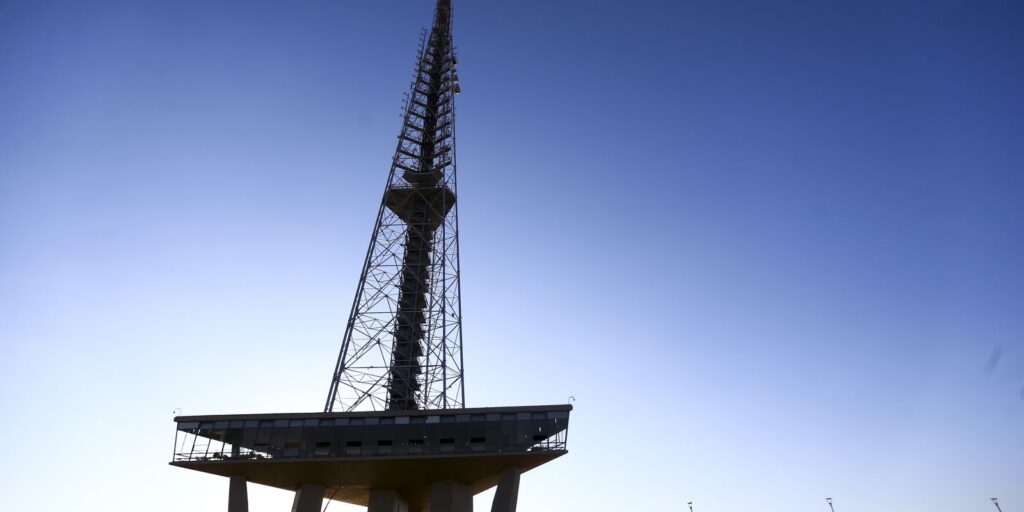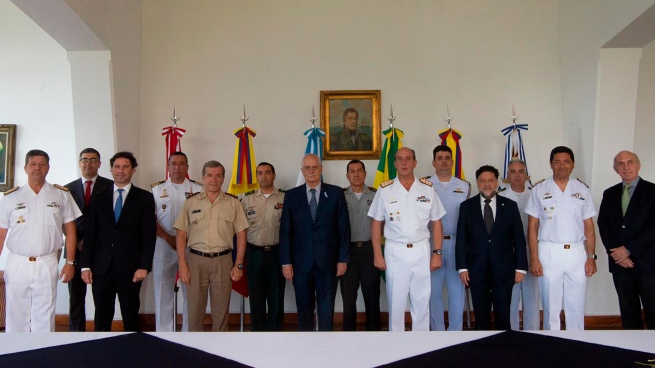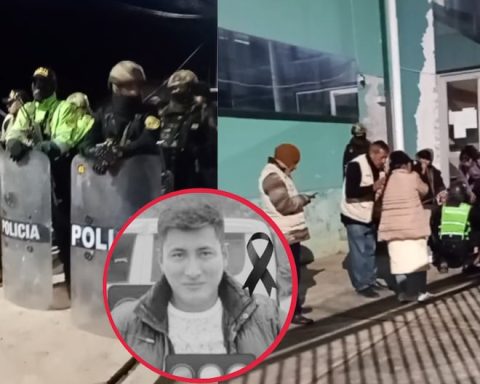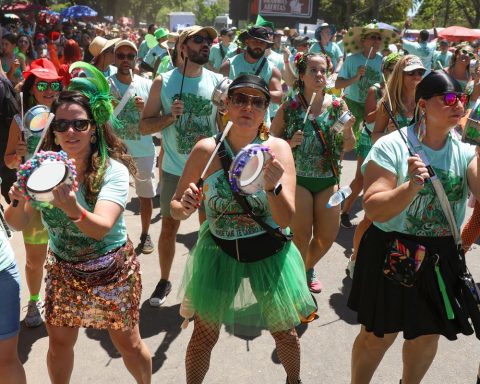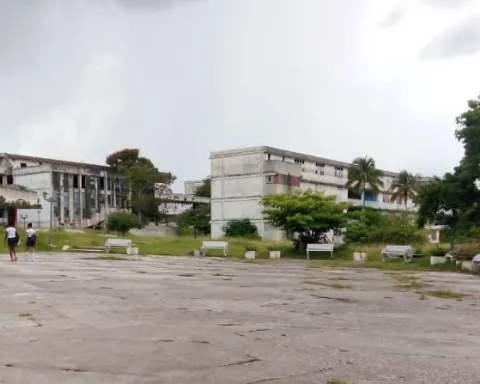Armed smugglers assaulted soldiers who were guarding a seized truck, with more skill than the uniformed men themselves, they managed to disarm them, recovered the high-tonnage vehicle and took it away. And it did not happen on a highway, but in the vicinity of Beni Avenue and the eighth ring road of Santa Cruz de la Sierra.
The first investigations indicate that there were five people who carried out the assault to recover the vehicle that had been seized by National Customs officials.
The operation was carried out from two vehicles that intercepted the seized truck, and now the National Customs has filed a complaint with the Santa Cruz Departmental Prosecutor’s Office to investigate the case. The only person identified is the driver of the truck, who escaped with those who carried out the rescue operation of the motorized vehicle.
The truck first seized and later recovered by the smugglers was transporting beer and wine that entered illegally from Argentina.
In recent weeks, it was possible to seize 15 trucks loaded with beer, corn, soybeans, garments and herbicides that entered the country through smuggling, but in none of those cases had there been a rescue operation like the one now lamented.
Smuggling and drug trafficking are the two illegal activities that are not only more lucrative, but also more permissive, operating at this time in the country. The markets of all Bolivian cities are flooded with consumer products that were smuggled in, without paying taxes, clandestinely.
It is not about small amounts of products that enter bags or suitcases, but thousands of tons of soft drinks, alcoholic beverages, cleaning products, food, packaging and even medicines that cross borders in high-tonnage trucks. It is not “ant smuggling”, but of great proportions.
In the case of vehicle smuggling, it is well known that the smuggling networks operate with state-of-the-art weapons, of a quality even superior to those used by law enforcement, and that they control the routes of the altiplano as if it were a territory free of authorities where those who rule are they, the criminals.
In those regions of the country, the smugglers are practically organized as an irregular armed force that communicates digitally by satellite phones and has the complicity and active defense of various populations located between the borders and the big cities.
Between January and February of this year, the National Customs seized more than Bs 82 million in more than 1,200 operations nationwide. The checkpoints on the highways rose from 19 to 26 and this contributed to greater effectiveness.
Although this is good news, it is also an indicator of the high level of smuggling that operates in the country, because if more than Bs 82 million were seized, the economic damage of the products that circumvented control or passed in complicity with them is much higher than the figure seized.
The country suffers millions of losses from smuggling not only because of the taxes that these products stop paying, but also because of the enormous damage to the national industry that stops selling and producing because the smuggled products are sold at lower prices. In this vicious circle influences the monetary policy of the Government, which keeps the Bolivian overvalued, compared to the economies of neighboring countries.
Armed smugglers assaulted soldiers who were guarding a seized truck, with more skill than the uniformed men themselves, they managed to disarm them, recovered the high-tonnage vehicle and took it away. And it did not happen on a highway, but in the vicinity of Beni Avenue and the eighth ring road of Santa Cruz de la Sierra.
The first investigations indicate that there were five people who carried out the assault to recover the vehicle that had been seized by National Customs officials.
The operation was carried out from two vehicles that intercepted the seized truck, and now the National Customs has filed a complaint with the Santa Cruz Departmental Prosecutor’s Office to investigate the case. The only person identified is the driver of the truck, who escaped with those who carried out the rescue operation of the motorized vehicle.
The truck first seized and later recovered by the smugglers was transporting beer and wine that entered illegally from Argentina.
In recent weeks, it was possible to seize 15 trucks loaded with beer, corn, soybeans, garments and herbicides that entered the country through smuggling, but in none of those cases had there been a rescue operation like the one now lamented.
Smuggling and drug trafficking are the two illegal activities that are not only more lucrative, but also more permissive, operating at this time in the country. The markets of all Bolivian cities are flooded with consumer products that were smuggled in, without paying taxes, clandestinely.
It is not about small amounts of products that enter bags or suitcases, but thousands of tons of soft drinks, alcoholic beverages, cleaning products, food, packaging and even medicines that cross borders in high-tonnage trucks. It is not “ant smuggling”, but of great proportions.
In the case of vehicle smuggling, it is well known that the smuggling networks operate with state-of-the-art weapons, of a quality even superior to those used by law enforcement, and that they control the routes of the altiplano as if it were a territory free of authorities where those who rule are they, the criminals.
In those regions of the country, the smugglers are practically organized as an irregular armed force that communicates digitally by satellite phones and has the complicity and active defense of various populations located between the borders and the big cities.
Between January and February of this year, the National Customs seized more than Bs 82 million in more than 1,200 operations nationwide. The checkpoints on the highways rose from 19 to 26 and this contributed to greater effectiveness.
Although this is good news, it is also an indicator of the high level of smuggling that operates in the country, because if more than Bs 82 million were seized, the economic damage of the products that circumvented control or passed in complicity with them is much higher than the figure seized.
The country suffers millions of losses from smuggling not only because of the taxes that these products stop paying, but also because of the enormous damage to the national industry that stops selling and producing because the smuggled products are sold at lower prices. In this vicious circle influences the monetary policy of the Government, which keeps the Bolivian overvalued, compared to the economies of neighboring countries.
;










